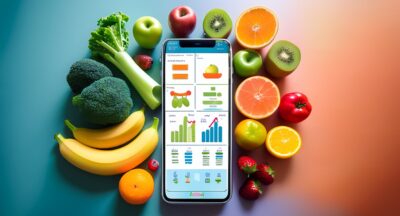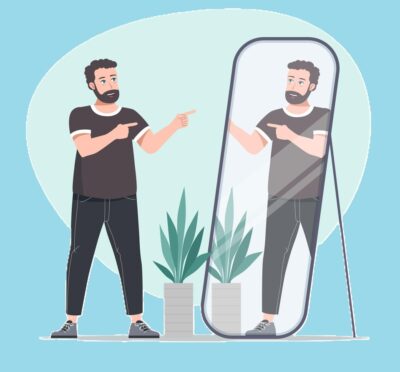How Can Personal Finance Apps Help You Manage Your Expenses?
Introduction: Managing personal finances has become an essential skill in the modern world. With the increasing complexity of our financial lives, tools that allow us to track, manage, and optimize our spending are crucial. One of the most effective solutions in recent years has been personal finance apps. But how exactly can these apps help you manage your expenses? This article will explore the features, benefits, and practical tips to help you make the most of personal finance apps while staying on track with your financial goals.
Table of contents
- How Can Personal Finance Apps Help You Manage Your Expenses?
- 1. What Are Finance Apps?
- 2. How Do These Apps Help You Track Your Expenses?
- 3. What Are the Key Features of Finance Apps?
- 4. How Can Finance Apps Improve Your Financial Health?
- 5. What Are the Best Finance Apps Available?
- 6. How Can You Choose the Right Finance App?
- 7. Can Finance Apps Help You Stick to Your Budget?
- 8. What Are the Benefits of Using Finance Apps?
- 9. What Are the Potential Drawbacks of Finance Apps?
- 10. How to Make the Most of Your Finance App?
- Conclusion :
1. What Are Finance Apps?
Personal finance apps are software tools designed to help individuals monitor, plan, and manage their finances. They often come with features like budgeting tools, expense trackers, and savings goals. These apps connect with your bank accounts, credit cards, and other financial institutions to give you an overview of your financial situation. They can provide insights into your spending patterns, highlight areas where you can cut costs, and help you stick to your budget.
2. How Do These Apps Help You Track Your Expenses?
Tracking your expenses is one of the most important steps in managing your finances. Personal finance apps automatically categorize and track every transaction, making it easier for you to see where your money is going. For example, an app can categorize your spending into categories like groceries, transportation, entertainment, and bills. This helps you identify areas where you might be overspending and take action to reduce unnecessary expenses.
Some apps even allow you to set alerts to notify you when you’re approaching your spending limits in specific categories. This can be a game-changer for those who struggle with sticking to a budget.
3. What Are the Key Features of Finance Apps?
The main features of personal finance apps typically include:
- Budgeting Tools: Set a budget for each category (e.g., groceries, entertainment) and track your progress over time.
- Expense Tracking: Automatically categorize transactions and monitor where your money goes.
- Bill Payment Reminders: Set up reminders to pay your bills on time and avoid late fees.
- Savings Goals: Set and track progress toward savings goals, whether for an emergency fund, vacation, or any other financial goal.
- Investment Tracking: Some apps allow you to monitor your investments and track their performance.
4. How Can Finance Apps Improve Your Financial Health?
By providing a detailed overview of your finances, personal finance apps can help you make better financial decisions. Here’s how:
- Identifying Areas for Improvement: Seeing exactly where your money goes can highlight spending habits that may not be serving your best interests, allowing you to take corrective action.
- Automating Savings: Some apps automatically transfer small amounts into your savings account regularly, making it easier to save without thinking about it.
- Debt Management: Personal finance apps can help you manage your debt by tracking payments and reminding you of upcoming due dates, which can prevent late fees and interest charges.
5. What Are the Best Finance Apps Available?
Here are some of the most popular personal finance apps that are highly rated by users:
- YNAB (You Need A Budget): YNAB is designed to help users get out of debt and build savings. Its approach focuses on giving every dollar a job, ensuring that you have a plan for each one.
- PocketGuard: This app connects to your bank accounts and credit cards, helping you manage your spending by showing you how much you can safely spend without overspending.
- GoodBudget: GoodBudget is a great option for people who want to use the envelope budgeting method, helping you set aside money for specific categories and track your expenses.
- Mavio: Expense Manager:
- A user-friendly app to manage your daily budget. It allows you to track expenses and income, organize them by categories, and supports multiple currencies.
- Expenso – Money Manager:
- A money management app that helps organize your income and expenses with ease. It provides monthly and yearly reports, backup and restore features, and supports multiple currencies.
- HandWallet:
- A comprehensive expense tracker, suitable for students, families, and small businesses. It helps you monitor your expenses and income by categories, with multi-currency support.
6. How Can You Choose the Right Finance App?
When selecting a personal finance app, consider the following factors:
- Ease of Use: Choose an app that is intuitive and user-friendly, so you won’t get overwhelmed with complicated features.
- Compatibility: Make sure the app supports your bank accounts and financial institutions.
- Features: Different apps offer different features, so it’s important to select one that matches your financial goals. For example, if you’re focused on saving for retirement, look for apps that allow investment tracking.
7. Can Finance Apps Help You Stick to Your Budget?
Yes, personal finance apps are incredibly effective at helping users stick to their budgets. With features like real-time transaction tracking and spending alerts, you can stay on top of your budget and make adjustments when necessary. Additionally, apps like YNAB encourage you to allocate funds for specific expenses in advance, making it easier to control your spending.
8. What Are the Benefits of Using Finance Apps?
Using personal finance apps offers several advantages, including:
- Convenience: You can manage your finances on the go, without having to manually track receipts and statements.
- Comprehensive Overview: These apps provide a comprehensive view of your financial situation, including all your accounts, transactions, and bills in one place.
- Time-Saving: Personal finance apps automate many tasks, such as categorizing transactions and tracking your spending habits, saving you time.
9. What Are the Potential Drawbacks of Finance Apps?
While personal finance apps offer many benefits, there are some potential drawbacks to consider:
- Privacy Concerns: Since these apps require access to your bank accounts and financial information, it’s important to choose an app with strong security measures.
- Over-reliance on Technology: While apps can be useful, it’s important not to become too reliant on them. Always double-check your financial information and ensure that the app is accurate.
10. How to Make the Most of Your Finance App?
To make the most of your finance app, follow these tips:
- Regularly Review Your Transactions: Make it a habit to check your app at least once a week to ensure you’re on track with your budget and financial goals.
- Set Realistic Goals: Set achievable financial goals that motivate you, whether it’s paying off debt or building an emergency fund.
- Adjust Your Budget: Life changes, and so should your budget. Make sure to adjust your spending categories as needed.

Conclusion:
Personal finance apps can be a valuable tool for anyone looking to take control of their finances. By offering powerful features like expense tracking, budgeting tools, and savings goals, these apps help you manage your money more efficiently. With the right app and a little discipline, you can improve your financial health and make smarter decisions for your future.
Frequently Asked Questions (FAQ) about Personal Finance Management Apps
- What are the best personal finance management apps available in 2025? Personal finance apps come in various forms, each offering unique features tailored to different needs. Some of the most highly-rated apps for 2025 include YNAB (You Need A Budget), and PocketGuard. These apps help users track their spending, create budgets, and manage savings in a secure and user-friendly way.
- Can personal finance apps help with debt management? Yes, many personal finance management apps offer features specifically designed to help users manage and reduce debt. They allow you to track outstanding balances, calculate repayment plans, and provide reminders for bill payments. Some apps also offer tips and strategies for paying off debt faster.
- Are there any personal finance apps that are suitable for freelancers or self-employed individuals? Absolutely! Apps like QuickBooks Self-Employed and FreshBooks are perfect for freelancers. They help track business expenses, create invoices, and calculate taxes, which can save freelancers valuable time. These apps also help organize your financial records for tax filing.
- How can I ensure my data is safe when using personal finance apps? To ensure your financial data remains safe, it is essential to choose apps that use encryption and two-factor authentication for added security. Additionally, always make sure you download apps from trusted sources like official app stores and check reviews before committing to any app.
- Can I use multiple finance apps at once? Yes, using multiple apps can be beneficial if you want to focus on different aspects of your finances. For instance, you might use one app for budgeting, another for investment tracking, and a third for debt management. However, ensure that the apps sync well together to avoid confusion.
References:
- “YNAB: You Need A Budget” (2023). YNAB.com.
- “PocketGuard: Expense Tracker & Budgeting” (2023). PocketGuard.com.
Image Resources:






